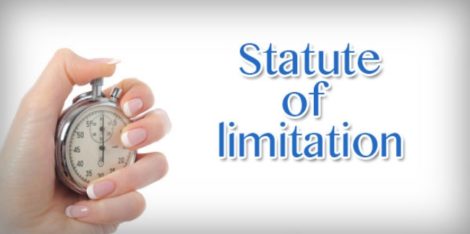A statute of limitations prescribes the maximum amount of time that can pass before action is barred from being brought. For example, in the District of Columbia, the statute of limitations for bringing a civil case for assault is one year. Therefore, the person seeking to file the suit must file the action within one year of the assault or they are barred from filing suit. The District of Columbia sets out its statute of limitations for various civil actions in the District of Columbia Code Section 12-301. The statutes are as follows:
“Except as otherwise specifically provided by law, actions for the following purposes may not be brought after the expiration of the period specified below from the time the right to maintain the action accrues:
- for recovery of lands, tenements, or hereditaments – 15 years;
- for the recovery of personal property or damages for its unlawful detention – 3 years;
- for the recovery of damages for an injury to real or personal property – 3 years;
- for libel, slander, assault, battery, mayhem, wounding, malicious prosecution, false arrest or false imprisonment – 1 year;
- for a statutory penalty or forfeiture – 1 year;
- on an executor’s or administrator’s bond – 5 years; on any other bond or single bill, covenant, or other instruments under seal – 12 years;
- on a simple contract, express or implied – 3 years;
- for which a limitation is not otherwise specifically prescribed – 3 years;
- for a violation of 7-1201.01(11) – 1 year;
- for the recovery of damages for an injury to real property from toxic substances including products containing asbestos– 5 years from the date the injury is discovered or with reasonable diligence should have been discovered;
- for the recovery of damages arising out of sexual abuse that occurred while the victim was a minor – 7 years from the date that the victim attains the age of 18, or 3 years from when the victim knew, or reasonably should have known, of any act constituting abuse, whichever is later.
- This section does not apply to actions for breach of contracts for sale governed by Section 28:2-725, nor to actions brought by the District of Columbia government.”
If you have any questions about whether you are within the statute of limitations for an action you seek to bring or an action that has been brought against you, then contact the Barkat Law Firm to speak with an attorney to get advice specific to your situation.






